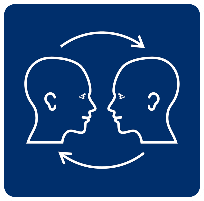Effects of Assistive Communication Training on Stereotypy with Individuals with ASD
Session
5.7
Practice Report
-
- Jacqueline Sura (STEPS Center for Excellence in Autism – Ohio)
- Melinda Griffin (STEPS Center for Excellence in Autism – Ohio)
- Michele Dunn (STEPS Center for Excellence in Aut
Summary
The purpose of this small study was to assess the effect of utilizing modifications of the phases of PECS for communication with an AAC device, on defined stereotypic behaviors. The two participants selected had autism spectrum disorder, limited effective communication and defined verbal and motor stereotypic behaviors. Both participants had different levels of exposure to previous communication systems, but neither have an effective mode of total communication.
Method/Activities/Techniques
The participants were exposed to a systematic communication training using the Logan®ProxTalker®. Modifications to the systematic teaching procedures for communication training were made to delay increasing distance from the device and the effects of the communication training on observed stereotypic behaviors were measured through scheduled videotaped observation using a time sampling procedure.
Results/Findings
The results showed a decrease in stereotypic behaviors in the participants as they progressed through communication phases.
Conclusions
Staff members have reported the number of verbal spontaneous requests made by one participant have increased and for the other, an increase in vocalizations was also noted. Further research is needed to clearly establish the part the voice output has contributed. Results of an extended trial will be shared at conference.
Level of Session
General
Age Group
Child
Adolescent
Interest
Primary school
Secondary school
Special school






